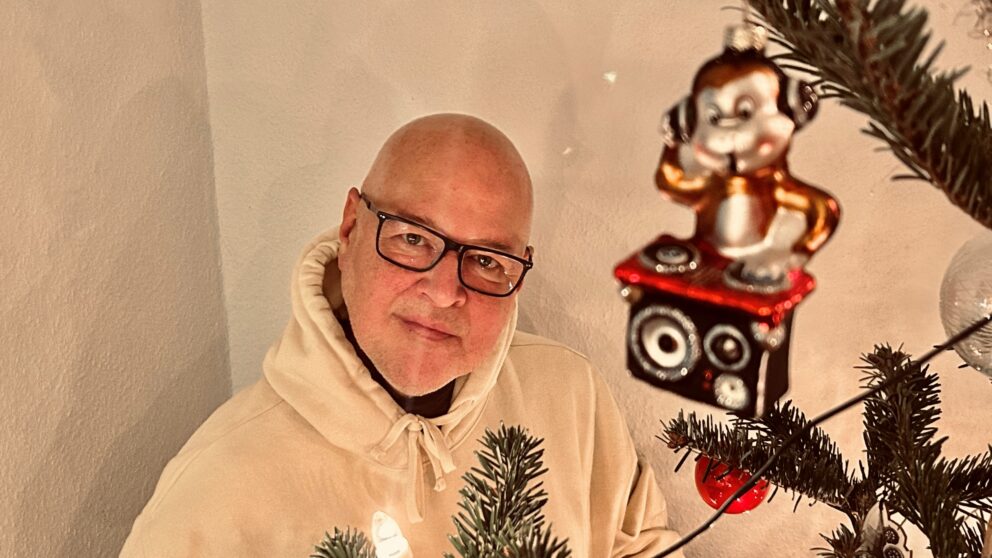
Three questions for Michael Becker, artistic director of Düsseldorf’s Tonhalle concert hall, about the Green Monday concert series
“We see the Tonhalle as a mirror of urban society and indeed society in general.”
The Tonhalle has come up with a very exciting approach – Green Monday – to dealing with one of the most pressing issues of our time. Each Monday’s concert is dedicated to a different sustainability topic, such as energy efficiency, waste and recycling or traveling by public transport. Visitors to the Tonhalle are invited to express their opinions and experts share their knowledge in the ‘Green Talk’. There are a total of twelve symphony concerts that invite people to reflect together on sustainability issues. Highlights include the ‘Green Pieces’, musical fragments of thought by eleven composers who contribute their musical interpretation of topics such as recycling. These compositional fragments are being brought together in the final concert at the end of the 2023/24 season. We wanted to find out more and asked Michael Becker, the Tonhalle’s artistic director, three questions.

In partnership with the Düsseldorf Symphony Orchestra, the Tonhalle has introduced the Green Monday concert series for the 2023/24 season. One of the objectives is to reduce the concerts’ carbon footprint. What specific plans are in place to achieve this?
In order to cut carbon emissions, we changed the standard parameters for a public concert but did so in an open-ended way. It is up to the audience to decide whether they can live with these changes. So, for example, there might be less light, different food or an expectation that they travel by public transport. So far, the results have been very promising and should be able to permanently reduce certain CO2 equivalents. The rest will have to be avoided in other ways. How? We won’t know until next season ...
Green Monday is part of the series of concerts that take place on Monday evenings. It begins with a ‘Green Piece’, which is a piece – a musical fragment – that is intended to capture the essence of sustainability through the medium of music. That’s a very exciting concept, but it is also somewhat abstract. Could you perhaps elaborate for us?
The concerts can vary quite significantly in character. They can be abstract, so that you don’t immediately recognise the specific theme. But they can also feature very obvious references to their theme. The composer Gordon Hamilton, for example, has written an upcycling piece on the subject of ‘trash’, in which instruments built from rubbish and scrap can be heard. And we found the work about public transport by a Japanese composer extremely impressive. It was rather melancholy and quite slow – which must be how the Japanese see public transport in Europe!

The Tonhalle always takes a stand. In January 2024, for example, you awarded the Human Rights Prize to the Russian dissident Sergei Lukashevsky and on your website you make reference to pianist Igor Levit’s conversation with Vice Chancellor of Germany Robert Habeck. That’s quite unusual for a cultural institution. What’s your motivation for getting involved in social and political issues?
We see the Tonhalle as a mirror of urban society and indeed society in general. Music is an incredibly evocative medium. It should not just serve an ornamental purpose but can – and I think it must – send out or at least amplify messages in order to remain meaningful. This can be achieved by linking it to very specific social or political discussions. It can also be done programmatically, i.e. by bringing together individual pieces of music that are able to tell a bigger story when combined. This societal relevance is given even great credibility when it is conveyed not just by guest artists, but also - as in our case - by a resident orchestra.
You can find out more about the Green Monday project at tonhalle.de.
Michael Becker has been artistic director of Düsseldorf’s Tonhalle concert hall since 2007. After graduating from school in Hannover, he studied viola at the Robert Schumann conservatory in Düsseldorf and was a member of various orchestras. Back in Hannover, he also completed a degree at the Institute for Journalism and Communication Research and worked for local newspapers and regional radio stations such as NDR and MDR. Becker was the brains behind Tonhalle’s ‘0-100’ programme, which made it the first concert hall in Germany to offer music for every age group. He also introduced the youth symphony orchestra and founded an under-16s orchestra and a children's orchestra. And now his innovative Green Monday concert series is providing a forum for people to discuss climate action in a musical context.
Interview: Cynthia Blasberg
Main photo: Portrait of Michael Becker, photo: Susanne Diesner




